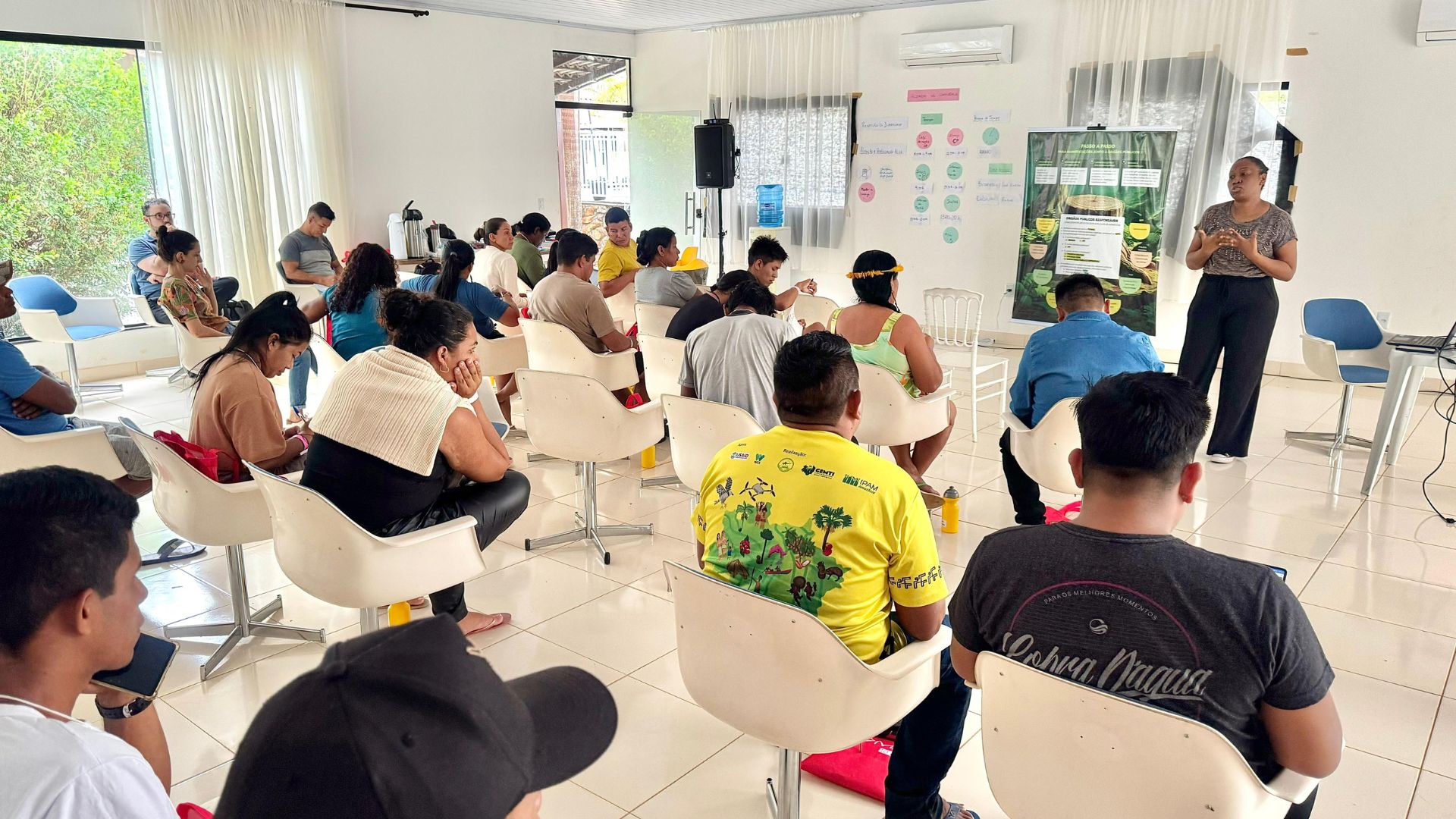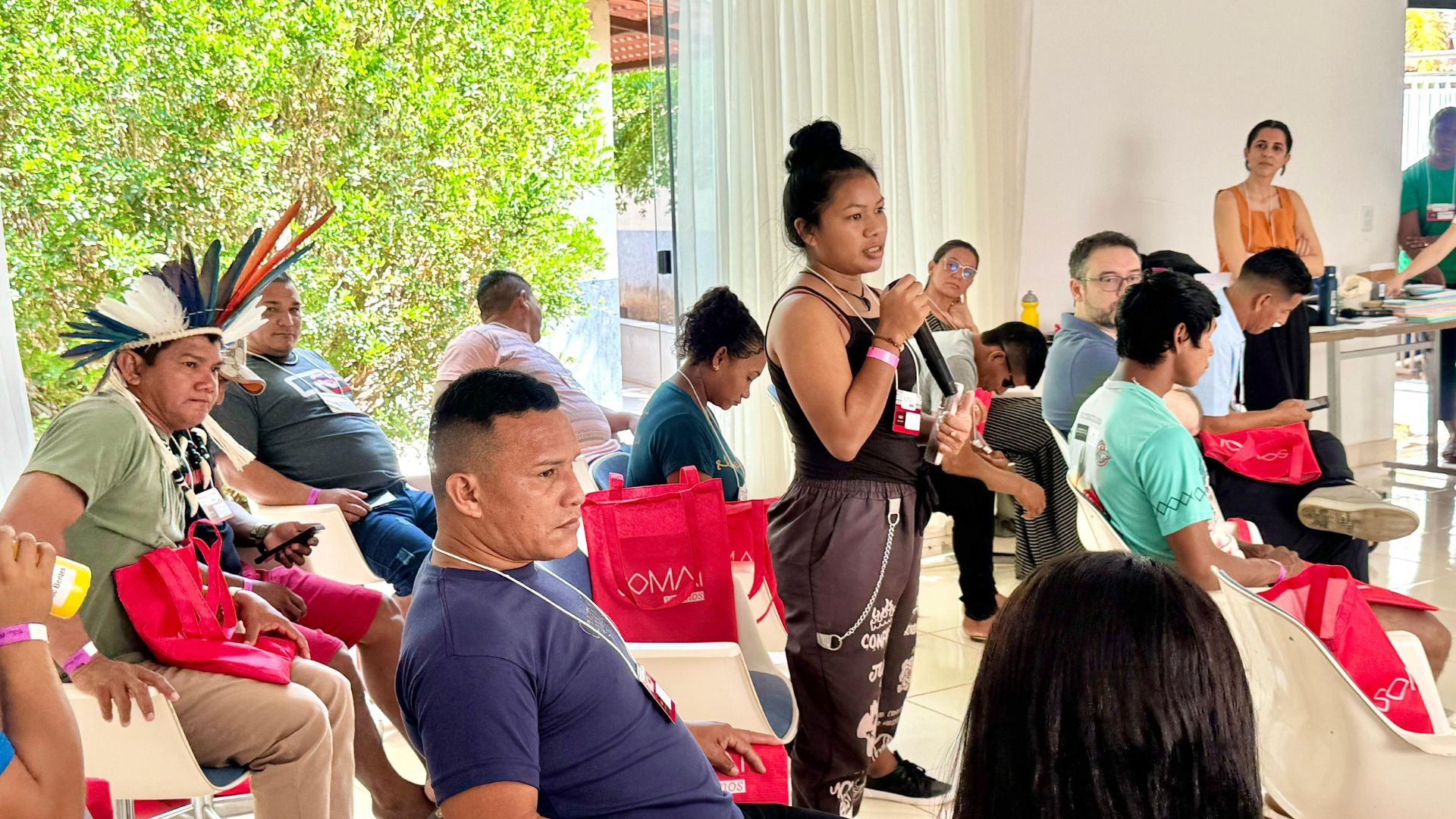
Brasilia, October 21, 2024 - The United Nations Office on Drugs and Crime (UNODC) Brazil, in partnership with the Amazon Environmental Research Institute (IPAM) and the Coordination of Indigenous Organizations of the Brazilian Amazon (COIAB), brought together representatives from nine indigenous territories in Brasilia (Federal District), Brazil between October 14 and 17 for a training session on the comprehensive protection of indigenous lands, including the development and improvement of a comprehensive plan to prepare responses and complaints to the risks and impacts caused by illegal mining.

Around 30 indigenous representatives from different territories in Pará, Mato Grosso, Amazonas and Roraima took part in the course, held as part of the SAR-TI project - Strengthening Early Warning Systems and Responses to Environmental Crimes related to Illegal Gold Mining in Indigenous Territories. The event was also attended by federal institutions such as the National Foundation for Indigenous Peoples (FUNAI), the Brazilian Institute for the Environment and Renewable Natural Resources (IBAMA), the Federal Public Prosecutor's Office (MPF), the Federal Police (PF) and the Ministry of Indigenous Peoples (MPI).
Indigenous peoples and traditional communities in Brazil are systematically affected by crimes such as land invasions, illegal mining and deforestation. In response to this, the training aimed to strengthen territorial governance networks, as well as develop plans and systems for monitoring and surveillance led by indigenous communities. Additionally, it sought to foster collaboration between indigenous organizations and federal government institutions to tackle these environmental crimes, particularly illegal mining.

Over the four-day course, participants explored topics such as the current situation of illegal activities in collective territories and the mechanisms for combating illegal activities using autonomous territorial surveillance systems, as well as state mechanisms. The course also features an exercise to evaluate autonomous territorial monitoring and surveillance systems, utilizing a methodological framework developed by UNODC for risk assessment in the context of illegal mining in the Amazon.
The course provided an exchange of experiences among the different indigenous and traditional territories with Brazilian governmental agencies, and civil society. The exchanges and insights that arose from this activity will be shared with the Inter-institutional Working Group (WG) on Indigenous Territorial Surveillance and Protection, which includes UNODC and 15 other members, such as indigenous associations and organizations, the Brazilian federal government and civil society. The WG aims to support the development of effective indigenous territorial protection policies in Brazil, as well as to improve the prevention and control of the impacts caused by environmental and other crimes in these territories. The next meeting of this WG is scheduled for November 2024.
SAR-TI – SAR-TI is an initiative of UNODC, supported by the Ministry of Foreign Affairs and International Cooperation (MAECI) of the Government of Italy. Its aim is to support and foster the articulation of indigenous associations and organizations, government institutions and civil society for the structuring, strengthening and integration of mechanisms for preparation, monitoring, early warning and response to environmental and other crimes in indigenous territories, with a focus on areas affected by illegal gold mining in the Amazon.